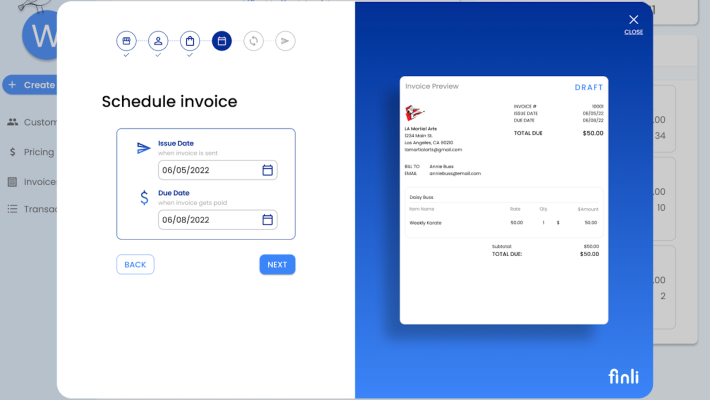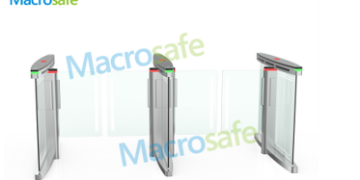If your service-based business is still collecting paper checks and only knows clients by their first name, Finli has an app for you.
After building mobile technology for fintechs and payment companies for the past 20 years, Lori Shao, CEO of Finli, started the mobile-first payment management company nearly 3 years ago when she noticed that she was around technology all day but still using a checkbook to manage household services, like landscaping and after-school programs.
Lori Shao, CEO of Finli Image Credits: Finli
The San Marino, California–based company is focused on microbusinesses, which according to the U.S. Small Business Administration Office of Advocacy, 9.9% of U.S. businesses are small businesses.
These are businesses that are often using five or more services, like QuickBooks, to manage their client billing and payments. Shao believes many business owners end up abandoning those services because they are complicated, expensive and heavily reliant on owners knowing a lot of information about their clients, over and above a first name and mobile phone number.
“You don’t have to fit yourself into a QuickBooks box or a Square box; you can continue to operate your own way, on your own terms and we meet you where you are,” Shao told TechCrunch. “Finli stands for ‘financial lift,’ so it is in our DNA to financially lift communities, and we can do that through one small, microbusiness at a time.”
Finli’s platform was developed so owners could send invoices, look up customer information and check on payment status in between gigs. Users are able to set up an account and send their first invoice via email, SMS text or other messaging app within minutes. There is also a customer relationship manager feature so they can digitize their client base if they want.
Shao said some competitors take a cut from the payments coming in, so it was important to her that there were zero merchant transaction fees for business bank-to-bank transfers. Owners can also continue to take cash and check payments, which are automatically reconciled within the app, and manage collections through automated emails and text messages.
Currently, Finli has a freemium model for sending invoices and receiving payments. There is also a Pro Package with flat monthly fees, starting at $25 per month, which gives access to advanced tools, like setting up recurring payment and ACH direct debit, all the tools that Shao says they would otherwise need a bank to provide.
The company, which has 11 employees, ended 2021 with 500 business accounts on the platform, and 6 months later, it grew to 3,000, or about 500%.
Shao closed on $6 million in seed funding to help grow the team and continue developing business banking features. The investment was led by the Urban Innovation Fund and included Motley Fool Ventures, M13, Alumni Ventures and all existing investors, including Mac Venture Capital, Slauson and Co., Core Innovation Capital, Techstars and Muse Capital. This gives Finli a total of $9.5 million in funding.
“I started the company with just me and my laptop and recognized that I needed to surround myself with talented individuals that can help me improve and take Finli to the next level,” she added. “We’re able to do so much with very little and finally, with this capital, we’re able to do so much more. There’s a lot of ideas that we have, there’s a lot of opportunities that we want to pursue but we’ve been just like so many other early stage startups, just limited in resources, which had limited acceleration of our growth.”
Finli is not alone in helping business owners manage their processes digitally. Earlier this year, Zuper, a provider of productivity tools for field service management and customer engagement, raised $13 million. Before that, Fuzey raised $4.5 million in seed funding for its “digital one-stop shop” for small businesses and independent contractors, while Puls Technologies raised $15 million for its mobile app connecting tradespeople with on-demand home repair services.
Source by techcrunch.com






























